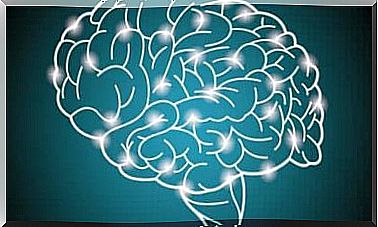Personality Psychology: Does Personality Really Exist?

Personality is one of the key topics in psychology. But does it really exist? What do we know about it and personality psychology?
No matter what school you go to, if you take psychology at a high level, then there is a good chance that you will get a subject called “personality psychology”. It sounds without a doubt like a very interesting topic. But we dare to promise that it is not an easy one.
There is no need to be afraid that it will get complicated. The thing is, there are many models with their corresponding updates, fixes, and associated criticisms that you must learn. It’s like if you started studying chemistry and there were several different periodic table systems. It’s the kind of complicated mess mom we’re talking about.
The real paradox: the existence of personality
But there is some other mess that goes beyond all the models and definitions that are in play. It is impossible to get around. We are talking about the existence of personality.
Believe it or not, but the question, “does personality really exist?”, Arises in the minds of many people. Think about it. Can we say that someone is nice, just as we can say that person is tall or short?
Eysenck or McCrae and Costa would probably answer yes. These two individuals created the most famous and well-known periodic systems of personality. When the time comes to study personality psychology, you will always see their names in your books and study guides.
In addition, growers of factor analysis, key components and other techniques for information synthesis through statistical processes would also agree.
But we are pretty sure that you probably know someone who is extroverted in one context and introverted in another. Sometimes it is not even necessary to change the context. In general, people can swing back and forth in this dimension even in the same social get-together.
As you can see, talking about a personality is complex and it can get a little confusing. Wouldn’t it be much easier to be able to categorize people in the same way as things. Then everyone would be much more predictable. Unfortunately, it is quite unrealistic when you think about each person’s individuality.

Personality psychology, but does personality really exist?
What if our belief in personality traits was an illusion, just like Santa Claus? After all, most people are not consistently the same from situation to situation. This possibility shook the foundations of personality psychology in the late 1960s, when Walter Mischel published a book called Personality and Assessment.
What did this psychologist say? Perhaps he considered the above possibility, but he did not implement it. At least not in the way Cain killed Abel, or Nietzsche beheaded God. In this case, Mischel chose a context-sensitive personality assessment.
The author said that people are not in themselves honest, but that it is possible to read their tendency to be honest under certain circumstances. Let’s take an example. Carl may be honest when he does not make a profit out of lying, but he may not be honest if he does. With this information, what can we say about his honesty?
If we move forward with this thought, then Carl may not be honest about protecting those he cares about. But he can be it if he gets a lot of money for it. Carl represents a whole world. Every human being is a whole universe.
Let’s return to Mischel. According to him, there are five variables that a person’s behavior is sensitive to:
- Skills. At all levels: Physical, intellectual, social, etc.
- Cognitive strategies. Strategies for coping with things and the individual’s experiences with them.
- Expectations. The consequences a person expects for each an option considered.
- Prioritization of personal values and self-perception: The actions that are in line with the person’s prioritization of values are certainly more likely.
- Self-regulating systems. This refers to the set of rules and norms that people adopt in order to regulate their behavior.
The Last Considerations on Personality Psychology
When someone talks about the difficulties that studies in other directions cause, they do not understand that psychology involves the most complicated field of study: the human being himself.
This shows the difference between general knowledge and scientific knowledge. The latter is aware of, or is usually aware of, the difficulties of its purpose.
Mischel believed that any behavior is a result of interaction. The one that takes place in the situation, the way the situation is perceived, and the resources to negotiate with it. Basically, when we talk about personality traits, we mean the uniform characteristics that are limited to specific situations.
To this day, personality psychology still receives some criticism. In particular, its theories of personality traits.

Let’s try Johan’s character traits
If now, for example, we put Johan in a hundred different situations that tested his honesty, then we could calculate a percentage for the times he was honest and give him points for this trait. He is 65% honest.
Would it now be possible to predict Johan’s behavior in a specific situation based solely on this information? Someone could pay Johan a lot of money to lie about something. But Johan could reject the offer and choose to be honest because he does not think money is more important than being sincere.
Missing information
The problem is that we actually have very limited information about the people we are dealing with. It may be, for example, that we know his balance in the bank, but not his brother, who is short of money.
In addition, one can safely say that the psychology of personality greatly finds it difficult when it comes to transferring the theoretical models and using them in real life.
One can also safely say that the models mentioned in the introduction look really good on PowerPoint slides. Nevertheless, they are still surrounded by many different problems. At present, the theory seems exhausted. It has survived primarily thanks to the advent of positive psychology.
Sooner or later, it will be our data that will begin to show us the way to a solution. When that happens, paradigms, such as IRT, can become the rope that can help us up the well. We are well aware that this article on personality psychology has been quite serious and hard to digest. For that reason, let’s end in a more cheerful tone. Here is a song for you:









